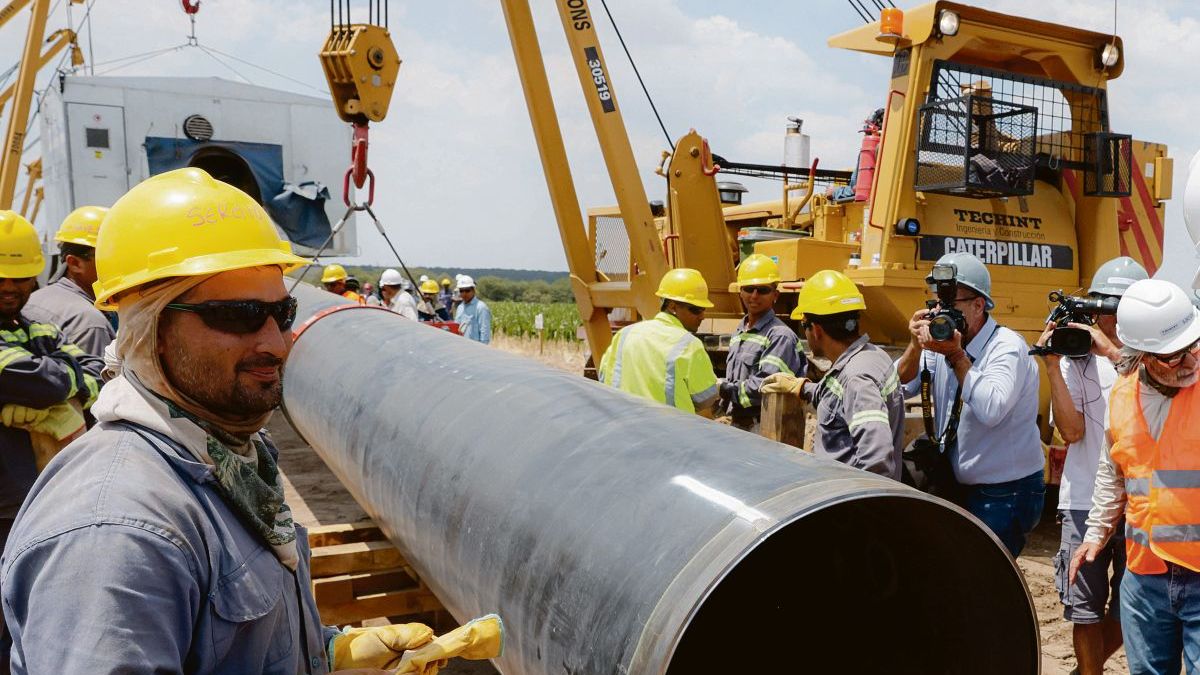This Tuesday, when the gas pipeline filling process starts, there will be fewer lights and flashes than expected a few weeks ago; is that the lack of electoral definitions within the ruling party postponed the official inauguration act until July 9. Anyway, the milestone is indisputable: a work that everyone estimated would take 24 months was completed in ten and will open the opportunity for a profound change in the exportable basket.
According to government estimates, by 2024 Argentina will cease to be a net importer of energy to have a positive balance. The forecasts of the Ministry of Energy that leads Flavia Royon indicate that there will be a significant leap in gas production that will lead to internal supply of 95% of national needs. They also anticipate that the sector will become the second largest export complex in the country and by 2030 revenues of more than US$18 billion are estimated.
It is known that energy is a fundamental input for manufacturing production, so the start-up of the new infrastructure work also generates expectations within that sector. The head of the Argentine Industrial Union, Daniel Funes de Riojaconsidered in dialogue with Ambit that “the fact that this Tuesday the gas pipeline begins to be filled and that it will be inaugurated on July 9 is tremendously auspicious” and said: “This work is important both for supply and for export and to add value to the gas and transform it in petrochemical products, fertilizers, among others”.
The president of the manufacturing entity, also explained that the start-up of the work is taking place at a time when, as a result of the pandemic and the war between Russia and Ukraine, the development of the energy plan is essential, since “they are carrying out production relocation operations within the Americas and this whole process requires an industry that has energy resources”.
The growth of production in Dead cow has no pause In the Ministry of Economy, they believe that it is even underestimated when evaluating its impact on the economy. They point out that, to a large extent, the level of activity is sustained despite the negative impact of the drought, due to the momentum generated by that basin. Beyond the four dozen oil and service companies that operate, there are also around 1,200 SMEs integrated into the value chain.
All these firms will have greater potential from the new gas pipeline. “It will have a very important impact, it will increase the level of drilling and direct investment,” he told Ambit Gerardo Molinaro, Country Manager for Argentina and Bolivia of DLS Archer, one of the most important oil services firms in the region. At the same time, he assured that “the level of fractures will increase to make existing wells and new wells more productive, so there will be a higher employment rate throughout the industry in Vaca Muerta.”
The reading they make in the industry is that if certain conditions are met, such as: macroeconomic stability, clarity in the rules of the game and regulatory frameworks that generate incentives, the Néstor Kirchner gas pipeline could be the initial kick of a strong transformation in the productive matrix. Argentina. The UIA took note: two years ago it incorporated the two energy chambers and it has also been advancing in the inclusion of mining firms.
Source: Ambito




